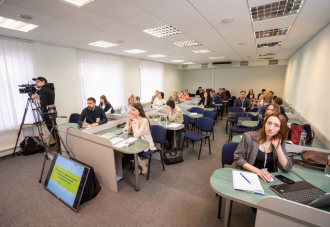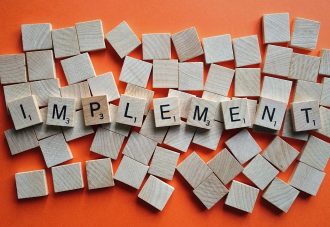What is the difference between mentors and coaches?
Mentoring is a way of transferring certain experience. The organization applying for mentoring does not a priori have such specific experience.
For example, newly created organizations or those starting to get engaged in new activities or areas may need a mentor. To make sure they don’t go from failure to failure and do things correctly and efficiently, it really pays to seek out a mentor: find a person or organization that has relevant experience and is able to pass that experience on.
A coach is a person who has many methods and tools, but works with the available experience. That is, coach believes that the organization and/or team are able to find a solution to the situation on their own based on the experience they have. A coach doesn’t advise, doesn’t tell you how to do things better. Coaches may have a lot of experience, but in the role of a coach, using certain methods/tools, such people create an opportunity for teams and organizations to realize, comprehend the experience they have already gained, reflect on it, accept it – and do something differently from now on.
That’s why a mentor or mentorship is when we don’t have a certain experience, and a coach is when we have that experience and we need a person who can look at it from the outside and see what’s wrong.
What types of requests should I go to mentors with?
You should go to mentors in order to get some experience that you do not have. For example, a mentor can tell you from their experience what to do in advocacy if the organization has never been engaged in advocacy or has been engaged in it locally rather than nationally. Mentors may have a better understanding of the process or content.
For example, let’s take the advocacy of territorial development plans. A mentor may or may not understand how local self-government works, but having worked on the topic for several years, may know what to consider when we write these territorial development plans.
Mentoring and coaching are about development and growing up. The request for a mentor from organizations that may not yet understand what the future holds may be vague. How do I know I need it if I don’t know if it exists because I haven’t had that experience?
Therefore, mentoring requests are usually very often generalized. And this is where the mentor’s job is to help at the first meetings, when we talk about the topic of the contract, to recognize or clarify what kind of request the mentee has.
Practice shows that this request will be clarified during almost the entire period of cooperation with the mentor. And that’s okay. That’s how we grow, that’s how we understand what’s next, what we can talk about, what we can ask.
Who in the organization should send the request to the mentor?
Any request for organizational development should come from those people who have the power to influence.
For example, organization’s leader decides that there is a need to engage in advocacy, there is a relevant topic. Perhaps they will participate in a certain program, in particular, in the Mentorship Program coordinated by the Centre for Democracy and Rule of Law. Then this leader and someone else on the team who understands that request voices the request to the mentor – what they need mentoring for.
It is important to understand that if this request for mentorship is voiced by a team that does not really have the power of influence, then we have huge risks that if we start to fulfill this request through mentoring, we can get bad processes within the organization.
Because both mentoring and coaching are about changes, different formats of changes, different methods and approaches. But when we talk about change at its core, it has to be implemented by someone who has the power of influence. Otherwise, it leads to a lot of resistance and bad processes in the organization.
How to choose a mentor for the organization?
Speaking from the experience of the Mentorship Program to strengthen the advocacy capacity of civil society organizations, first of all the mentor organization must be chosen. This is an organization that has proven over time that it is experienced, meets certain minimum standards for NGOs, particularly with regard to accountability, publicity, and has a person on the team who is willing or ready to be a mentor.
Two criteria for choosing a mentor:
- If it is an organization, then you should look at experience and certain recommendations, whether there is a person in the organization who wants and is ready to share, knows how to do this;
- If we are talking about a natural person, then the first thing to consider is whether a person can be a mentor at all.
For example, I can’t be a mentor for someone who wants to be a ballerina, because I’ve never been a ballerina and I don’t go to ballet as often as I would want to.
But I can become a mentor for an organization that, for example, wants to develop or initiate conflict resolution in communities, because I have such experience and I’ve done it.
You should also pay attention to whether the specific person who will be the mentor understands what mentoring is, whether this person has a sufficient level of methods and tools to share their experience.
After all, experience cannot be imposed, what is imposed will be rejected. That is, the experience should be both useful and with the correct presentation of information.
So if you look at it from an existential point of view, a mentor can be someone who has already gained something and has quite a lot of experience. Mentorship is an opportunity to share your experience.
Prepared by Olena Matviichuk,
Organizational Development Expert
and Mentorship Program Coordinator
Mentorship Program is implemented as part of the Project “Ukraine Civil Society Sectoral Support Activity” implemented by the Initiative Center to Support Social Action “Ednannia” in partnership with the Ukrainian Center for Independent Political Research (UCIPR) and Centre for Democracy and Rule of Law with the sincere support of the American people through United States Agency for International Development.



